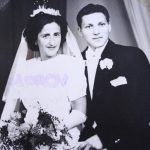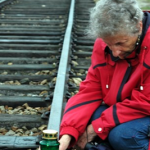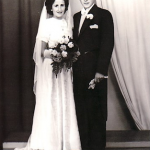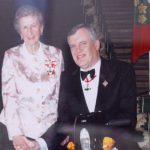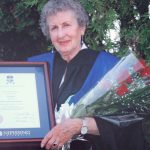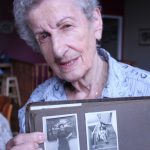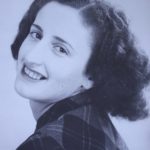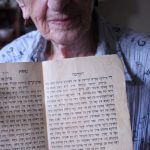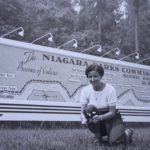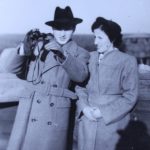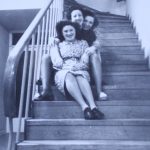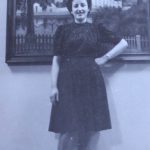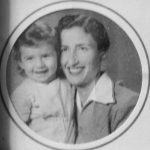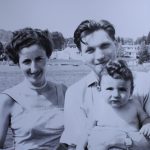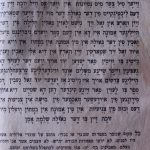Eva Olsson grew up in Hungary, born into a Jewish family in Satu Mare, Hungary. She remembers the family’s Hasidic traditions, and the poverty and simplicity of her early life. Like other Hungarian Jews, Eva was comparatively isolated from the war raging all around them; they heard rumours and such, but as Hungary was allied with the Axis powers, day-to-day life was relatively unchanged. That was not the case after May 1944 though; Nazi Germany occupied its Hungarian ally, and Hungarian Jews immediately felt the weight of the Shoah. Eva and her family were now inside the ghetto, and with in a matter of weeks the deportations began. The family walked seven kilometres and were boarded on to the waiting boxcars, where the brutal conditions were unrelenting for four days. They arrived in Auschwitz-Birkenau and with the selections, the family was separated, with most going to the gas chambers and crematoria. Eva and her sisters were selected fro slave labour, and after spending a few weeks in the camp, they were sent to Dusseldorf, and then Essen, Germany, to work in the Krupp factory system. Eva spent some time there during the winter of 1944-45, and was present during the day-and-night bombing that made up the Allies’ Ruhr bombing campaign. Bombs eventually destroyed the part of the factory where Eva was working, so she and the other forced labourers were herded into a hole in the ground, before being forced on to the boxcars again. This time she was sent to Belsen, which would be her final destination. She spent several months there, barely surviving starvation and disease, when the British liberated the camp in April 1945. That is when her emotional and physical recovery began, and during this time she made the decision to relocate herself and her sister to Sweden. There she would meet Rudi, her eventual husband, and a few years later the two made the journey to Canada, where they settled and raised their family.
Eva did not speak about her experiences for many years; in fact, it was only when her grandchildren were old enough – fifty years after the fact – that she began to open up, first to the grandchildren’s classes, and then to audiences all over Canada, and even at the United Nations. Eva has a passion for social justice and her mission is to maintain the legacy and the memory of those that were murdered during the Shoah.
Eva Olsson was interviewed in her home in Bracebridge, Ontario by Scott Masters in July 2018.
Videos
Click next video below to keep watching
- 1. Family and Early Life; Satu Mare
- 2. The War Comes to Hungary; The Ghetto and the Deportations
- 3. The Cattle Car
- 4. The Women's Camp; Slave Labour
- 5. Taken to Essen; The Guards
- 6. Her Father's Fate; Belsen
- 7. The Swedish Red Cross
- 8. Faith; Canada; Sharing the Story
- 9. Denial; A Message to the Veterans; Return to Europe

